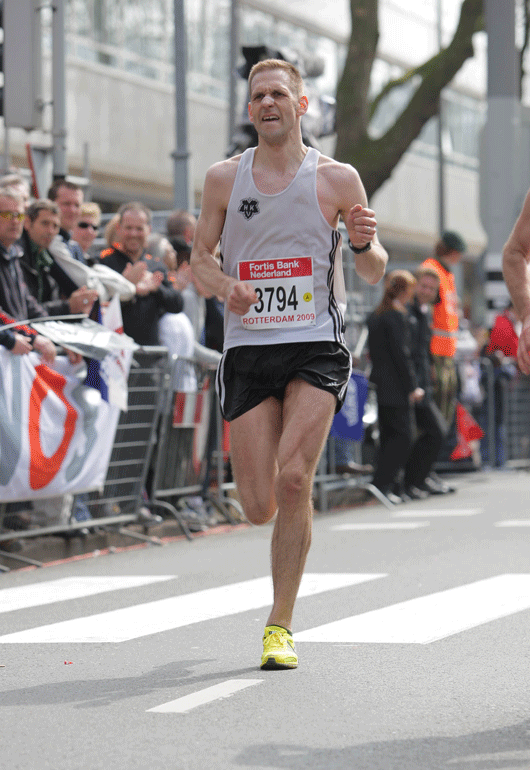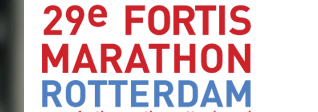Having thought about it - what went wrong, if you can say so - for almost a week now, it seems that the main reason why the result of the Rotterdam Marathon was no 2:39h but a 2:49h is that 8 months of training, albeit quite intensive training, just is not enough to build up sufficient endurance at the required pace (~3:47min/km). Well, after all a 2:49h isn’t bad, it earned us rank 123 out of almost 6500 runners. But it just didn’t fulfill the project internal goal of 2:40h, or ideally 2:39h. The progress curve got quite a hit now.
I think the preparation for the marathon was largely as good as it could have been. about 900km in 9 weeks prior to the marathon with peaks of up to 122km a week. Intensive runs, with longer and shorter intervals, although all those had to be done indoors. THere’s been relatively much snow and ice this winter in Helsinki. Further, sleep and recovery didn’t get sufficient attention, that’s definitely to improve. Perhaps, the flu that hit three weeks before the Rotterdam Marathon was a consequence of that and still had some impact on the marathon result. Other preparation items such as weight loss, pre-race carbo diet and enough water before the race, all that was really ok.
The problem with a marathon is that you can only loose on every 5km considered in isolation. You start a bit faster and might win a little, perhaps half a minute or 50 seconds on the first 5k, but then will have to pay for it somewhere between 30 and 40km with many minutes. The same happens if you try to keep your pace after 20km although you feel that it won’t be possible to carry through the whole way. At the half marathon mark I chose to lower the reference km time from 3:45min to between 3:50 and 3:55min to try to delay the slow down that would cost many minutes as far as possible. Unfortunatly, it came anyway right away (from 28km onwards).
Ingoing forward now into the summer and ultimately the fall marathon the following adjustments are on top of the list.
- A coach is brought on to review the training plan and have a look at co-ordination (running style)
- One or two half-marathons will be part of the test race program during the summer to improve endurance at higher-than-marathon pace.
- More focus to recovery and sufficient sleep, especially during periods of intensive training
- More fartlek sessions instead of basic runs, the alteration of pace is known to be a more efficient form of training.
And one thing I need to remember next time, smiling when crossing the finish line, even if a cramp locked down large parts of the legs. The picture that’s taken shouldn’t look like this! (I do look normally better than this!)

See the illustrative article on the Rotterdam Marathon and Rotterdam as a city earlier here on 400days
Today’s training: a recovery run, 10km at about 4:40min/km
Tags: race analysis, rotterdam marathon








Leave a Reply
You must be logged in to post a comment.